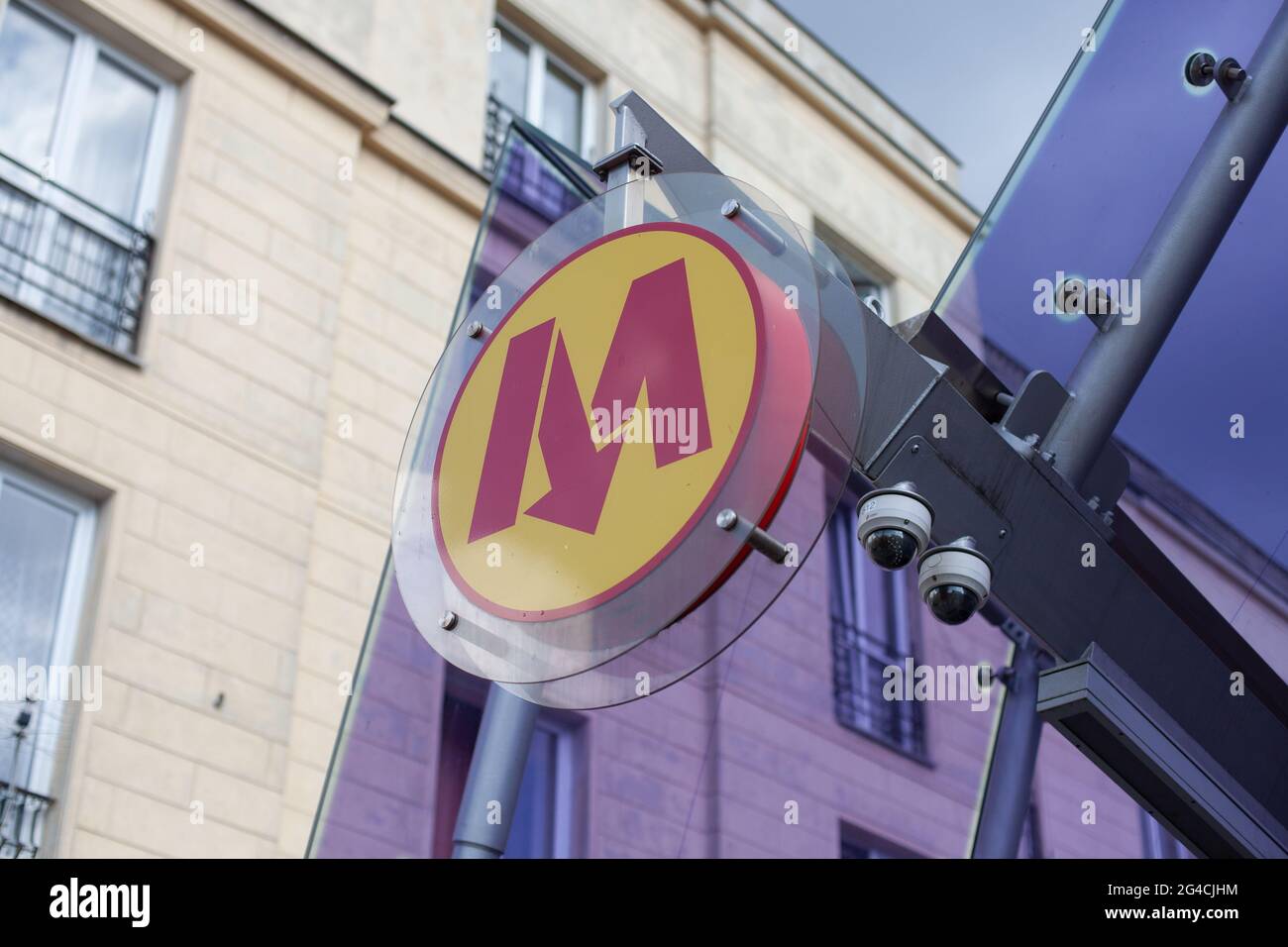Have you ever found yourself pausing, just a little, when trying to figure out if you should use "may," "maybe," or "may be" in a sentence? It's a common moment of thought, you know? Many people, actually, find these little words a bit tricky, and it's totally understandable. These "may phrases," as we might call them, often pop up in our daily talks and writings, carrying subtle but important differences in meaning. Getting them right really helps your message come across clearly, and that's what we want, isn't it?
Beyond their role in expressing possibility or permission, the word "May" also holds another, quite different, place in our language. It's the name of a month, of course, the fifth one in the year. This dual nature of "May" sometimes adds to the confusion, making it, in some respects, a truly versatile word in English. So, we're going to unpack these uses today, helping you feel more sure about when and how to use each one, and that's a good thing, I think.
This guide will clear up the common questions around these words, from their grammatical roles to their everyday use. We'll also look at how "May" fits into the calendar, discussing its place among the other months. By the end, you'll have a much better handle on these "may phrases," making your English communication, quite simply, more precise and natural. It's really about making language work for you, you see.
- Are Steven Seagal And Katey Sagal Related
- Hilarious Goodnight Quotes
- Hilarious Celebrity Quotes
- Tara Yummy Parents
- Peso Pluma Mom
Table of Contents
- Understanding the Nuances of May, Maybe, and May Be
- May as a Month: Its Place in the Calendar
- Frequently Asked Questions About May Phrases
- Putting It All Together: Practical Tips
Understanding the Nuances of May, Maybe, and May Be
It's interesting, really, how just a little space or the lack of it can completely change what words mean. When we talk about "may phrases," we're often looking at three very similar-sounding terms: "may," "maybe," and "may be." While they all sort of hint at possibility or conjecture, their roles in a sentence are quite distinct. Knowing these differences helps you speak and write with greater accuracy, which is pretty important, you know?
May: The Modal Verb of Possibility and Permission
"May" is a modal verb, and it's actually quite a flexible one. It's used, typically, to show either a possibility or to grant permission. When you use "may" in a sentence, it always needs to be followed by the base form of another verb. It doesn't change its form for different subjects, which makes it, in a way, pretty straightforward to use. For example, you wouldn't say "he mays go," you'd always say "he may go." This is a key point to remember, I mean, it really is.
When "may" expresses possibility, it suggests something could happen, or it might be true, but there's no absolute certainty. It's like saying "perhaps" or "it's possible." For instance, if you say, "It may rain later," you're suggesting the possibility of rain, but you're not stating it as a definite fact. This usage is about making a guess or a prediction that isn't entirely firm. So, it's about what "could be," in a sense.
- Nate Garner Age Model
- Highest Snapstreak
- Sofia Elizabeth
- Are Jack And Mckinley Still Together
- How Tall Is Snoop Dogg In Feet
As for permission, "may" is a more formal way of asking for or giving consent. If a teacher says, "You may leave now," they are granting permission for students to depart. It's a polite and proper way to allow something. This is different from "can," which often implies ability. So, "May I use your pen?" is usually considered more polite than "Can I use your pen?" It's a subtle but important distinction, you see, in polite conversation.
The text mentions that "may" can mean "can," "will," or "perhaps." This really highlights its versatility. "Can" fits the permission aspect, "will" or "perhaps" fit the possibility. For example, "She may arrive soon" implies "perhaps she will arrive soon." It's about what is likely, or at least not impossible. It's a verb that carries a sense of openness about what might happen, or what is allowed, which is really quite useful.
Maybe: The Adverb of Uncertainty
"Maybe" is a single word, and it functions as an adverb. This means it usually modifies a whole sentence or a verb, adding a sense of uncertainty or possibility to the entire thought. It's very similar in meaning to "perhaps" or "possibly." A key thing about "maybe" is that it can often stand alone, or start a sentence, which is something "may be" cannot do. This makes it quite flexible in terms of placement, you know.
Think about it this way: if you say, "Maybe it will rain later," you're expressing the same idea of possibility as "It may rain later," but "maybe" is doing the work of the adverb. It's like saying, "Possibly, it will rain later." The whole statement is tinged with doubt or uncertainty. It's a very common word in casual conversation, actually, because it allows us to express a lack of certainty without getting too formal. It's quite direct, in a way.
The text provides a great example: "It may be just a joke." If you were to use "maybe" here, you'd say, "Maybe it's just a joke." Notice how "maybe" sits at the beginning, or near the beginning, of the sentence, acting as a general modifier. It's a complete thought, more or less, by itself. This adverbial function is what sets it apart from "may be," which always needs to be part of a larger verb phrase. So, it's pretty clear, I think, when you look at it that way.
Another way to think about "maybe" is that it often answers a question about possibility. If someone asks, "Are you going to the party?" you might respond with a simple, "Maybe." This shows that you're unsure, or it's a possibility, but not a definite yes or no. This ability to stand alone is a strong indicator that you're dealing with the adverb "maybe." It's very, very common, too, in everyday speech.
May Be: The Two-Word Verb Phrase
"May be" is actually two words working together: "may" (the modal verb) and "be" (the base form of the verb "to be"). This combination creates a verb phrase that expresses possibility about a state of being or an action. It's crucial to remember that "be" here is the main verb, and "may" is simply modifying it, showing that the "being" or the action is a possibility. This pairing is very specific, you know, in its function.
The text gives us a perfect example: "It may be just a joke." Here, "may be" means "it is possibly a joke." The "be" part refers to the state of being a joke. You can't just remove "be" and have a complete sentence; "It may just a joke" doesn't make sense. This is a key difference from "maybe," which, as we discussed, can often stand alone or be removed without making the sentence grammatically incorrect, though the meaning would change. So, it's a very distinct construction, really.
Consider another instance: "She may be late." This means it's possible that she will be late. The "be" refers to her state of being late. If you tried to use "maybe" here, you'd say, "Maybe she is late," or "She is maybe late" (though that sounds a bit awkward). The point is, "may be" always involves the verb "to be" in its base form, expressing a possible state or condition. It's about what something "might be" or "could be," in a sense, rather than just "perhaps."
The text also suggests thinking of "may be" as "might be," which is a very helpful way to grasp its meaning. If you can substitute "might be" and the sentence still makes sense, then you're almost certainly dealing with "may be" (two words). For example, "Courage seems now to have deserted him. May it quickly reappear." Here, "May it quickly reappear" is a wish or a strong hope, almost like "I hope it will quickly reappear." But if we look at "It may be just a joke," we can easily say "It might be just a joke," and it still works. This substitution trick is a really good one, you know, for checking your understanding.
May as a Month: Its Place in the Calendar
Away from the grammar, "May" has a completely different identity: it's the fifth month of the year. This is a proper noun, always capitalized, and it brings with it thoughts of spring flowers, warmer weather, and often, a sense of renewal. It's part of a sequence, of course, that helps us keep track of time and seasons. This simple word, "May," holds quite a bit of cultural meaning, too, beyond its linguistic rules.
The Months and Their Short Forms
Our calendar year is divided into twelve months, and for convenience, most of them have common abbreviations. These short forms are very useful in calendars, diaries, and quick notes. The text lists several of these, and it's good to know them. For example, January becomes "Jan.," February is "Feb.," March is "Mar.," and April is "Apr." These are pretty standard, you know, in English-speaking countries.
Moving through the year, June is "Jun.," July is "Jul.," August is "Aug.," and September is often "Sep." or "Sept." Then we have October as "Oct.," November as "Nov.," and December as "Dec." These abbreviations, you see, help us write dates more quickly and efficiently. They are, in a way, a shorthand for time, and they're recognized pretty much everywhere. It's a practical aspect of the language, really.
Learning these short forms is a simple but effective way to improve your everyday English literacy. They pop up everywhere, from official documents to casual texts. So, being able to recognize and use them correctly is a small but useful skill. It's like knowing the common symbols in a map, it just makes things easier to read and understand, and that's always a plus, isn't it?
Why May Has No Short Form
Here's a rather interesting detail, as the text points out: "May" typically does not have a commonly used abbreviation. While months like January (Jan.) and February (Feb.) are shortened, "May" remains "May." This is largely because it's already a very short word, just three letters. Trying to shorten it further wouldn't really save much space or effort, and it might even make it less clear. So, it just stays as it is, which is pretty neat, actually.
Imagine trying to abbreviate "May." Would it be "Ma"? Or "My"? Neither option seems particularly clear or distinct. The goal of an abbreviation is to make something shorter while still being easily recognizable. Since "May" is already so concise, there's simply no practical need to shorten it. This makes it, in a way, unique among the months that are usually abbreviated. It's a little linguistic quirk, you know?
This lack of an abbreviation for "May" is a small detail, but it's one that often comes up when people are learning about month names and their short forms. It's a good piece of trivia to remember, and it helps solidify your understanding of how these calendar terms are used in English. So, next time you write the date, you can be confident that "May" stands alone, unshortened, which is kind of cool.
Frequently Asked Questions About May Phrases
People often have questions about "may phrases" because they can be a bit confusing. Here are some common ones, with clear answers to help you out.
What is the main difference between "may" and "maybe"?
Well, "may" is a modal verb, and it always needs another verb after it to form a complete thought, like "She may go." It shows possibility or permission. "Maybe," on the other hand, is an adverb, and it can stand alone or modify a whole sentence, meaning "perhaps." So, you could say, "Maybe she will go," or just "Maybe." It's really about their grammatical role, you know, in the sentence.
How can I tell if I should use "may be" or "maybe"?
A good trick is to try replacing the phrase with "might be." If "might be" fits and makes sense in the sentence, then "may be" (two words) is the correct choice. For example, "It may be cold tomorrow" works with "It might be cold tomorrow." If you can replace it with "perhaps" and the sentence still makes sense, then "maybe" (one word) is probably what you need. So, "Maybe it will rain" means "Perhaps it will rain." It's a pretty reliable way to check, I think.
Does the month "May" have an abbreviation?
No, the month "May" typically does not have a common abbreviation. Since it's already a very short word with only three letters, there's no real need to shorten it further. So, when you write about the fifth month, you just write "May," which is quite simple, really.
Putting It All Together: Practical Tips
Getting these "may phrases" right is a matter of practice, like your English grammar skills. The more you read and pay attention to how these words are used by others, the more natural it will feel for you to use them correctly. Don's forget, too, that language is something we learn by doing, so don't be afraid to try them out in your own speaking and writing. It's how we all get better, you know.
Here are some quick tips to help you keep things clear:
- For possibility/permission + verb: Use "may." (e.g., "You may enter," "It may happen.")
- For "perhaps" or "possibly" (often at the start of a sentence): Use "maybe." (e.g., "Maybe we should go," "Maybe.")
- For "might be" or a possible state of being: Use "may be." (e.g., "She may be tired," "That may be true.")
Remember that the context of your sentence will almost always give you clues about which "may phrase" to use. If you're talking about the fifth month of the year, it's always capitalized "May," with no abbreviation. Keeping these simple rules in mind will help you communicate with greater precision and confidence, which is, honestly, a great feeling. You can find more details on English grammar rules on sites like Language Insights, which is pretty helpful.
As you continue to use English, you'll find that these distinctions become second nature. It's a process, of course, but a rewarding one. Keep practicing, and you'll soon master these subtle yet important parts of the language. Learn more about grammar basics on our site, and link to this page for more grammar tips.
Related Resources:



Detail Author:
- Name : Branson Abernathy
- Username : thomas98
- Email : brown.alexys@gmail.com
- Birthdate : 2000-09-11
- Address : 333 Vida Wall Suite 823 Port Amanitown, TN 77118-6270
- Phone : (239) 772-1912
- Company : Halvorson, Wiza and Schneider
- Job : Host and Hostess
- Bio : Et aliquam pariatur explicabo voluptas ut. Quia doloremque iusto nihil quia nobis et. Ut sed eaque hic sit voluptatem officia. Nobis eaque aut non aut qui fugiat recusandae dolor.
Socials
instagram:
- url : https://instagram.com/maudbarton
- username : maudbarton
- bio : Quas molestiae aut modi voluptas. Et tempore quisquam esse. Sit consequatur est ut qui.
- followers : 4556
- following : 2735
tiktok:
- url : https://tiktok.com/@maud_id
- username : maud_id
- bio : Sed qui eum eius occaecati ipsum aut repellat.
- followers : 6504
- following : 1807
facebook:
- url : https://facebook.com/maud.barton
- username : maud.barton
- bio : Quasi eum sed dolorum odit repellat blanditiis.
- followers : 3344
- following : 2382